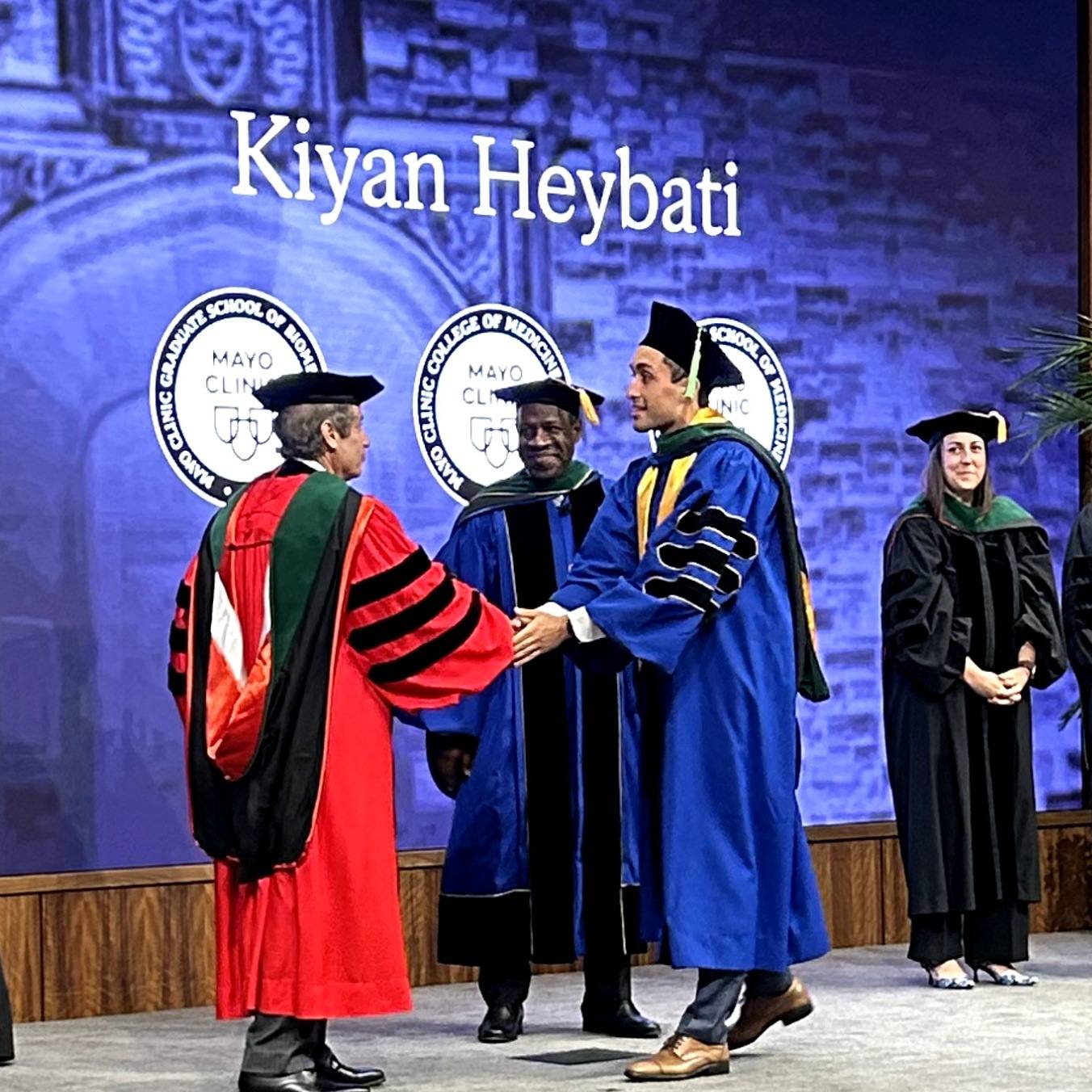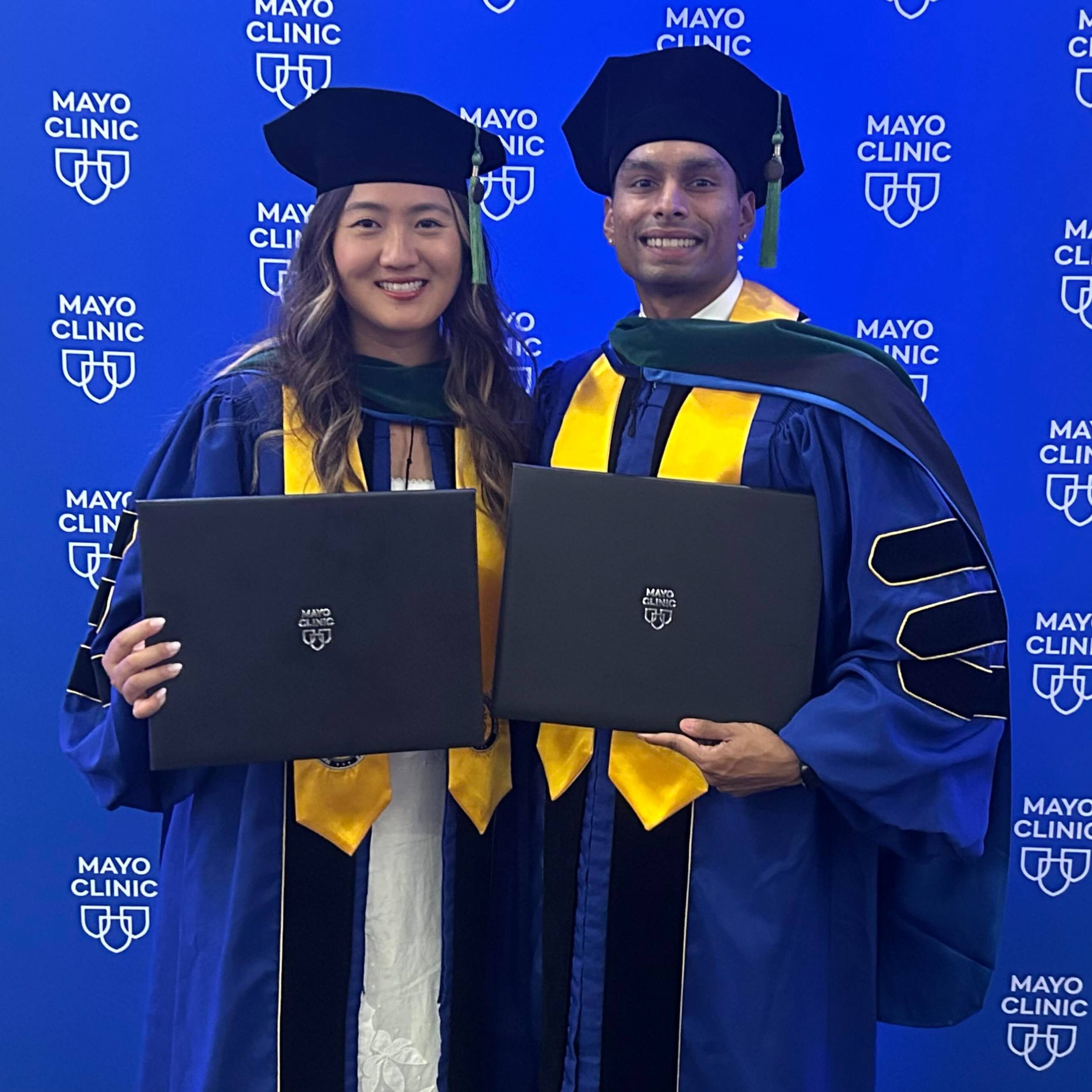-

Mayo Researchers Validate Rapid Sideline Concussion Test for Youth Athletes
Eye movement test detects concussions and possible 'silent' concussions
PHOENIX — A rapid, easy-to-administer eye movement test is showing great promise as a sideline concussion test for youth sports, a Mayo Clinic study finds.
In the study, Mayo Clinic researchers assessed high school hockey players using the King-Devick test. The test requires an athlete to read single-digit numbers displayed on cards. After suspected head trauma, the athlete is given the test, which takes about two minutes, and the results are compared to a baseline test administered previously. If the time needed to complete the test takes longer than the baseline test time, the athlete should be removed from play until evaluated by a medical professional.
About 150 high school hockey players received preseason testing to establish a baseline time in the study. During the subsequent season, 20 athletes had a suspected concussion. All 20 had a prolonged King-Devick test, and all were later clinically diagnosed with a concussion.
“Youth athletes are at a higher risk for concussion and a longer recovery time than adults,” says Amaal Starling, M.D., Mayo Clinic neurologist and a co-author of the study. “While the test has already been clinically validated for detecting concussion in collegiate and professional athletes, we wanted to ensure it was also validated in adolescents.”
In addition, the study detected potential brain injuries in athletes who had not reported symptoms of concussion by demonstrating abnormally slowed King-Devick times at the end of the season.
“It has become evident that not only do many athletes not report symptoms of concussion, but concussive brain injuries may occur without the athlete even experiencing symptoms,” says Priya Dhawan, M.D., the study’s first author. “This is a very important and unsuspected finding from this study — King-Devick testing may not only be a valuable remove-from-play tool, but may detect those who may have suffered a silent or unreported concussion and identify those athletes who may need further evaluation before returning to play the next season.”
The study indicates that the King-Devick test is a promising tool for the real-time evaluation of concussion because it looks at rapid eye movement and attention. Both are affected by concussions. Most importantly, Dr. Starling says, the test is affordable and can easily be used by any youth sports league, and administered by non-medical personnel.
“The King-Devick test represents a rapid, accurate, and cost-effective tool to identify concussion on the sideline and make appropriate game-time, remove-from-play decisions,” she says.
David Dodick, M.D., Mayo Clinic neurologist and director of the Mayo Clinic concussion program, said that not only should the King-Devick test be part of the baseline assessment of athletes who participate in contact sports, but also should be used for all sideline assessments of suspected concussion and pre-season assessments of athletes to document a potential prior silent or unreported brain injury.
Steven Galetta, M.D., the Philip K. Moskowitz, M.D. professor, and chair, Department of Neurology at NYU Langone Medical Center, adds that the King-Devick test has now been validated as an important concussion tool in multiple populations including boxers, mixed martial arts fighters, collegiate athletes, rugby players and now in a youth sports.
“As a visual performance measure that requires saccades, accommodation and near vision, the King-Devick test is clearly additive to the current sideline measures that capture cognitive and balance function,” Dr. Galetta says.
###
About Mayo Clinic
Recognizing 150 years of serving humanity in 2014, Mayo Clinic is a nonprofit worldwide leader in medical care, research and education for people from all walks of life. For more information, visit 150years.mayoclinic.org, www.mayoclinic.org and newsnetwork.mayoclinic.org.
MEDIA CONTACT: Jim McVeigh, Mayo Clinic Public Affairs, 480-301-4222, mcveigh.jim@mayo.edu







